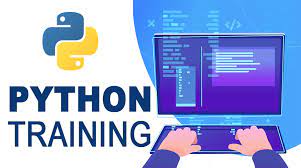Web development has undergone a significant transformation in recent years, with new technologies and programming languages reshaping the landscape. Among these, Python has emerged as a powerful and versatile language that is revolutionizing the way developers approach full stack development. In this article, we will explore the impact of Python training on full stack developers and how it is shaping the future of web development.
The Rise of Python in Web Development
Python’s rise to prominence in web development can be attributed to its simplicity, readability, and versatility. It serves as a high-level programming language with an easy-to-understand syntax, making it an ideal choice for beginners and seasoned developers alike. The language’s readability facilitates collaboration among developers, contributing to efficient project management.
Python’s popularity is not limited to the backend; it has gained significant traction on the frontend as well. Frameworks like Django and Flask have become go-to choices for building robust and scalable web applications. The seamless integration of Python across the entire development stack positions it as a key player in the evolution of full stack development.
Python Training: Empowering Full Stack Developers
1. Comprehensive Skill Set
Python training equips full stack developers with a comprehensive skill set, allowing them to seamlessly navigate both frontend and backend development. Python’s versatility enables developers to work on diverse aspects of a project, from designing user interfaces to implementing server-side logic. This versatility is a valuable asset in an industry where adaptability is key.
2. Rapid Development with Django and Flask
Frameworks like Django and Flask have become synonymous with rapid web development in Python. Django, a high-level web framework, follows the “don’t repeat yourself” (DRY) principle, emphasizing code reusability and efficiency. Flask, on the other hand, is a lightweight framework that provides developers with the flexibility to choose components based on project requirements.
Python training familiarizes full stack developers with these frameworks, empowering them to build robust web applications with minimal effort. The emphasis on efficiency and simplicity in these frameworks aligns with Python’s core principles, making it an attractive choice for developers seeking streamlined workflows.
3. Data Science Integration
The integration of data science into web development has become increasingly prevalent, and Python stands out as a frontrunner in this domain. With libraries like NumPy, Pandas, and Scikit-learn, Python facilitates the manipulation and analysis of data, enabling full stack developers to incorporate data-driven features into their applications.
Python’s compatibility with artificial intelligence and machine learning libraries further expands the possibilities for full stack developers. This interdisciplinary approach, where web development and data science converge, positions Python-trained developers at the forefront of innovation.
The Impact on Development Efficiency
1. Code Reusability and Maintainability
Python’s emphasis on clean, readable code contributes to enhanced code reusability and maintainability. Full stack developers trained in Python can create modular components that are easily transferrable between different parts of a project. This not only accelerates development but also simplifies the debugging and maintenance processes, resulting in more robust and stable applications.
2. Community Support and Documentation
The Python community is known for its inclusivity and robust support system. Developers have access to a vast repository of libraries, documentation, and community forums, streamlining the problem-solving process. Python’s extensive ecosystem ensures that full stack developers can leverage existing solutions and best practices, reducing the time and effort required for troubleshooting and development.
3. Agile Development Practices
Python’s compatibility with agile development practices aligns with the industry’s shift towards iterative and collaborative approaches. Full stack developers trained in Python can easily adapt to agile methodologies, fostering a dynamic and responsive development environment. This adaptability is crucial in an era where rapid iteration and continuous delivery are essential for staying competitive.
Conclusion:
The impact of Python training on full stack developers is profound, revolutionizing the way web development is approached. Python’s versatility, readability, and comprehensive ecosystem empower developers to navigate both frontend and backend development seamlessly. The integration of frameworks like Django and Flask, coupled with Python’s prowess in data science, positions trained developers at the forefront of innovation.
Development efficiency sees a significant boost with Python, thanks to its emphasis on code reusability, maintainability, and compatibility with agile practices. The supportive Python community further enhances the development process, providing developers with a wealth of resources and collaborative opportunities.
As we move forward, Python’s influence on web development is likely to grow, shaping the landscape of full stack development and pushing the boundaries of what is achievable. Aspiring and seasoned developers alike would do well to embrace Python Training In Patna, unlocking a world of possibilities and contributing to the ongoing revolution in web development.




